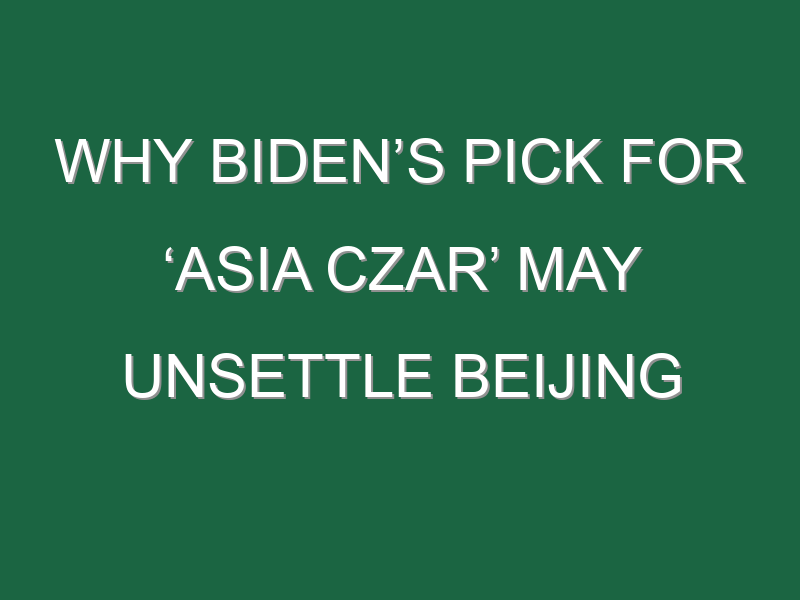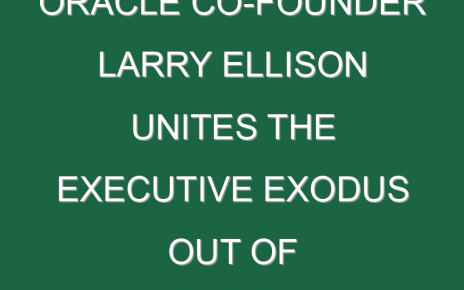This is the web version of Eastworld, Fortune’s newsletter focused on business and technology in Asia. Subscribe here to get future editions in your inbox.
Joe Biden has picked Obama administration veteran Kurt Campbell for a newly created position as senior official for Asia policy, a spokesman for the president-elect’s transition team said Wednesday.
Campbell is a former Pentagon official who rose to become the top U.S. diplomat for Asia in Hillary Clinton’s State Department. He’s a pillar of the Washington policy establishment—polished diplomat, skilled bureaucrat, and respected foreign policy theorist—and boasts an impressive network of relationships in Asia and on Capitol Hill.
In the Biden administration, Campbell’s title will be “Indo-Pacific coordinator.” (Biden apparently rejected an earlier suggestion to call the new role “Asia czar.”) Campbell will report directly to National Security Council adviser Jake Sullivan and be granted broad authority to integrate China policy across “every government agency.”
Washington Post columnist Josh Rogin hails Campbell’s appointment as a decision that “should reassure nervous Asian allies that the Biden administration is taking the China challenge seriously.”
But it may raise hackles in Beijing. Campbell is a China hawk, widely credited as the architect of the Obama administration’s 2012 “pivot to Asia” strategy, which called for taking a more confrontational approach to dealing with China while bolstering U.S. military resources and diplomatic relationships in the rest of the region.
Campbell has elaborated on the approach in a 2016 book, The Pivot: The Future of American Statecraft in Asia, and a series of subsequent articles in Foreign Affairs. In a 2018 essay co-written with Ely Ratner, who is expected take a senior Asia-related post in the Biden administration, Campbell essentially sided with the Trump administration in declaring America’s four-decades-long policy of engagement with China a failure.
“Washington once again put too much faith in its power to shape China’s trajectory,” they wrote. “All sides of the policy debate erred: free traders and financiers who foresaw inevitable and increasing openness in China, integrationists who argued that Beijing’s ambitions would be tamed by greater interaction with the international community, and hawks who believed that China’s power would be abated by perpetual American primacy. Neither carrots nor sticks have swayed China as predicted.”
Critics of Obama’s pivot strategy, which was later rebranded a “rebalance,” have argued that it actually aggravated tensions in the Asia-Pacific because it signaled to Beijing that the U.S. was determined to contain China militarily. Some have even argued that the Communist Party’s lurch to more authoritarian style of governance under Xi Jinping was a direct response to the U.S. shift.
In a 2019 essay entitled “Competition Without Catastrophe,” Campbell and Sullivan stress that containment wasn’t a goal of the pivot strategy. Cold War-style “containment” won’t work for dealing with China, they argue, because China is a far more formidable competitor than the old Soviet Union. The aim of U.S. policy should be figuring out how to co-exist with China, not how to change it. American policymakers, they suggest, risk repeating old mistakes if they assume that “competition can succeed in transforming China where engagement failed—this time forcing capitulation or even collapse.”
In a new Foreign Affairs essay, published this week, Campbell and co-author Rush Doshi, director of the Brookings Institution’s China Strategy Initiative, outline how the U.S. can “shore up” security in Asia by focusing on building alliances in the region, a task they acknowledge as “among the most challenging in the history of modern statecraft.”
It’s also among the most urgent—and Campbell now has an opportunity to put his theory to the test.
Clay Chandler
[email protected]
This edition of Eastworld was curated and produced by Grady McGregor. Reach him at [email protected].





